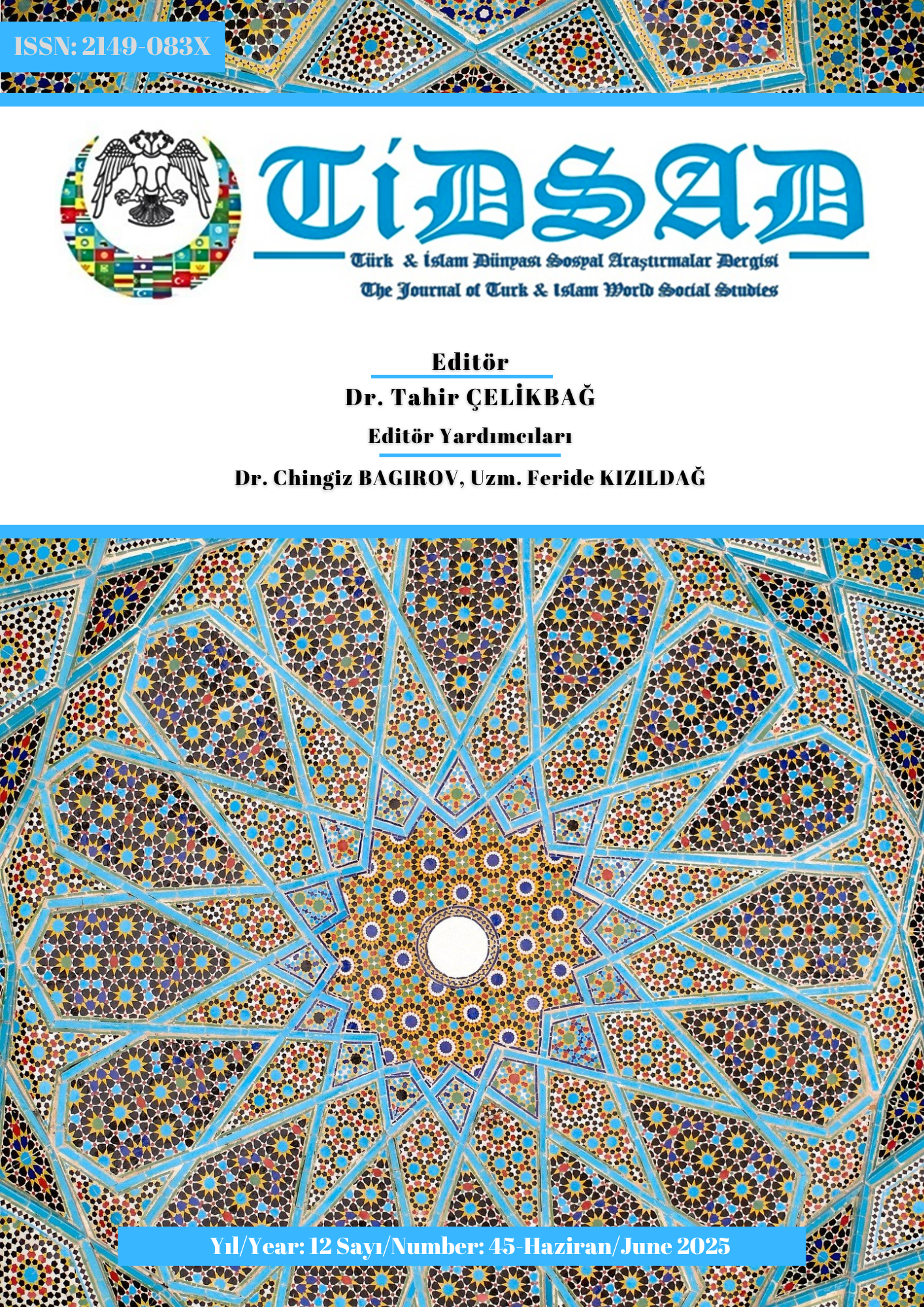İletişim, Toplum ve Edebiyat İlişkisi Bağlamında Toplumsal Cinsiyet, Erkeklik ve Erkeklik Temsili: Araba Sevdası İsimli Roman Üzerine Bir İnceleme
Author :
Abstract
Recaizade Mahmut Ekrem’in yazmış olduğu Araba Sevdası’nda Osmanlı toplumunda Tanzimat Dönemi’nin getirmiş olduğu Batılılaşmaya yer verildiği ve romanın baş kişisi Bihruz Bey aracılığıyla dönemin kabul gören erkeklik kalıplarının dışına çıkıldığı görülmektedir. Çalışmada romanın merkezine alınan Batılılaşma sorunlarına eleştirel bir bakış açısıyla yer verilmektedir. Toplumsal cinsiyet normlarının farklılık gösterdiği romanda kadının erkeğe ve erkeğin de kadına karşı gerçekleştirdiği tahakküm incelenmiştir. İktidar yapıları ile doğrudan ilişkili bir alan olan erkeklik, erkeklerin toplumsal yapı içerisindeki yerini belirler. Bu bağlamda çalışmada Connell ve Foucault’nun iktidar tanımlarından hareketle erkeklik ve iktidar arasındaki karşılıklı ilişki merkeze alınarak roman baş kişisi Bihruz Bey’in toplumsal yapı içerisindeki konumu bir problem olarak görülmüş, dönemin eril iktidar ilişkilerinin romandaki temsili incelenmiştir. Ayrıca çalışmada Lacan’ın “Fallus” kavramı çerçevesinde Bihruz Bey’in eşya ile kurduğu ilişkiye yer verilerek erkeklik ve eşya kullanımı irdelenmiştir. Çalışmada Connell ve Foucault’nun iktidar tanımlarından hareketle roman baş kişisi Bihruz Bey’in toplum içindeki yeri incelenirken Lacan’ın “Fallus” kavramı çerçevesinde de ana karakterin arabası ve kıyafetleriyle olan ilişkisinin temelleri ele alınmaktadır. Çalışmada Tanzimat döneminin toplumsal cinsiyet kalıplarının dışına çıkan ve farklı bir erkekliği görünür kılan Bihruz Bey aracılığıyla, dönemin erkeklik temsilini eleştirel bir bakış açısıyla ele almak mümkün olmuştur. Bu bilgiler doğrultusunda çalışma içerisinde dönemin dayatılan cinsiyet kalıplarının dışına çıkan erkeğin durumu, toplumsal cinsiyet ve psikanaliz konuları ile incelenmektedir.
Keywords
Abstract
It is seen that in Araba Sevdası, written by Recizade Mahmut Ekrem, the Westernization brought about by the Tanzimat Period in the Ottoman society is included and the accepted masculinity patterns of the period are broken through Bihruz Bey, the main character of the novel. The problems of Westernization, which are at the centre of the novel, are included from a critical perspective. In the novel, where gender norms differ, the domination of women over men and men over women is examined. Masculinity, an area directly related to power structures, determines the place of men in the social structure. In this context, the study focuses on the mutual relationship between masculinity and power, based on Connell and Foucault's definitions of power, and the position of the main character, Bihruz Bey, in the social structure is seen as a problem, and the representation of the masculine power relations of the period in the novel is examined. In addition, in the study, masculinity and the use of objects were examined by including Bihruz Bey's relationship with objects within the framework of Lacan's concept of "Phallus". While the study examines the place of the novel's main character, Bihruz Bey, in society, based on Connell and Foucault's definitions of power, the foundations of the main character's relationship with his car and clothes are discussed within the framework of Lacan's concept of "Phallus". In the study, it was possible to address the representation of masculinity of the period from a critical perspective through Bihruz Bey, who went beyond the gender stereotypes of the Tanzimat period and made different masculinity visible. In line with this information, the situation of men who go beyond the imposed gender stereotypes of the period is examined with the topics of gender and psychoanalysis.





